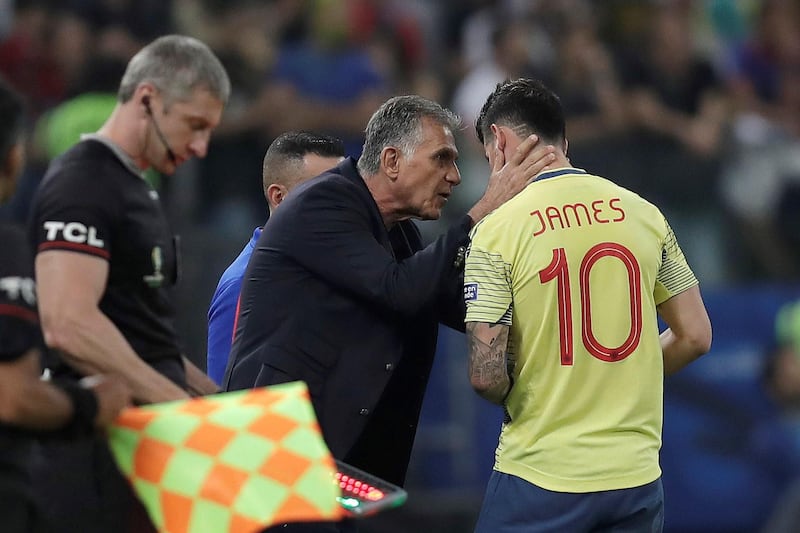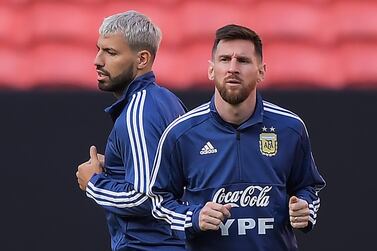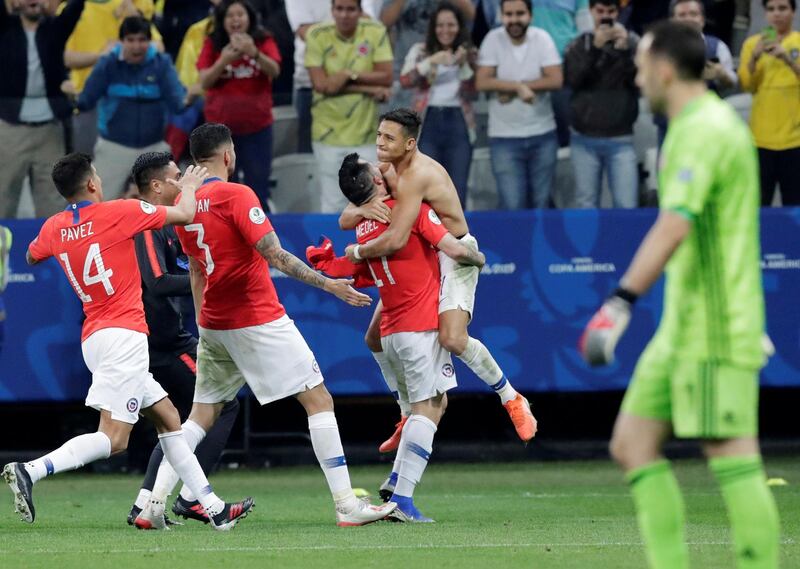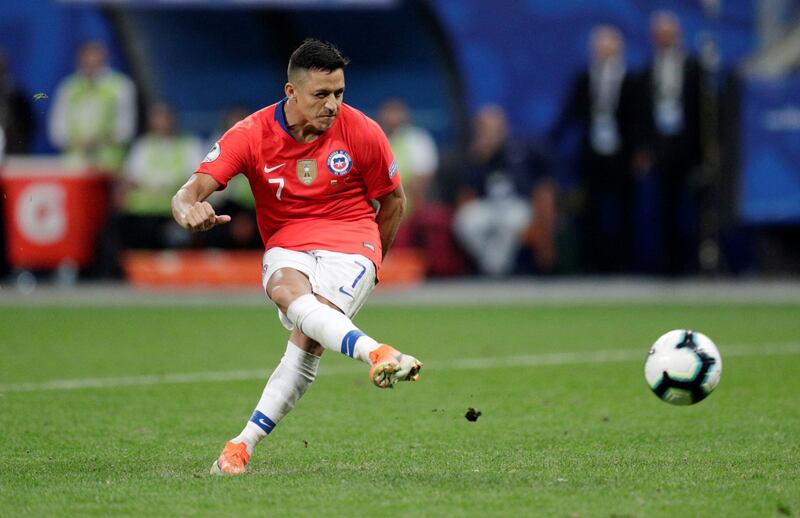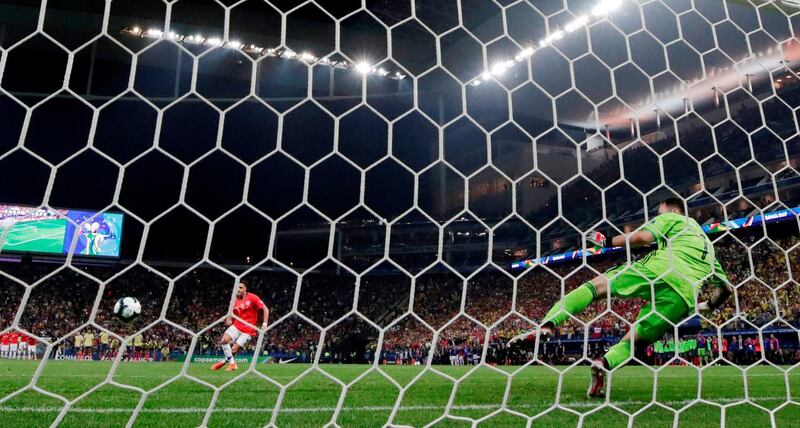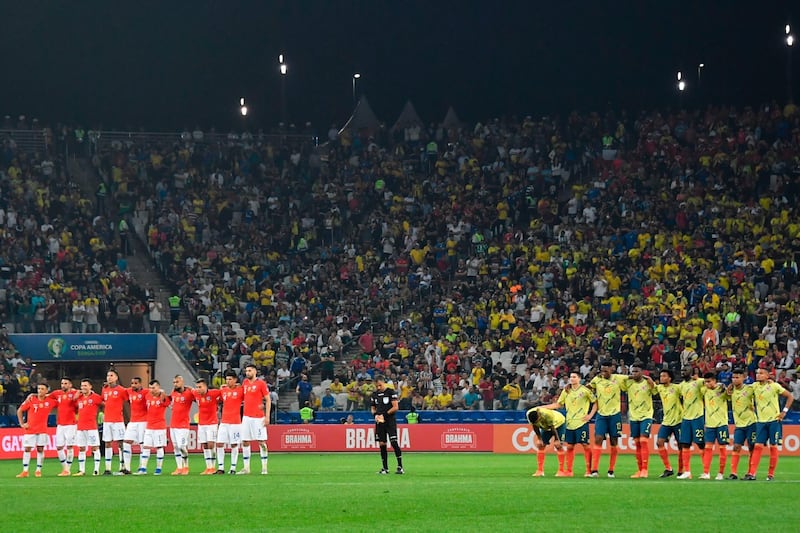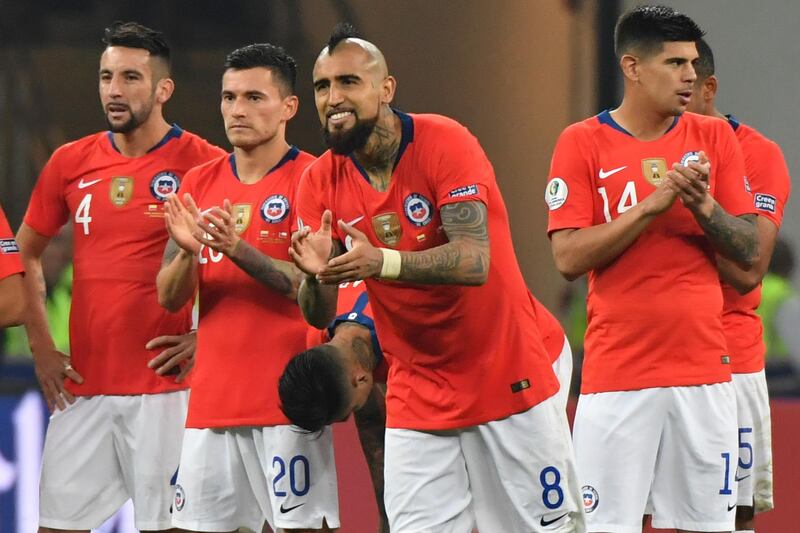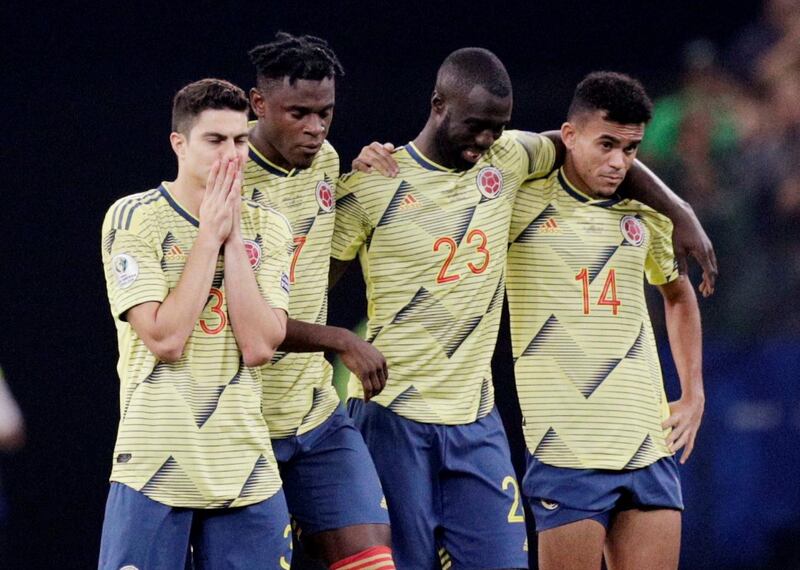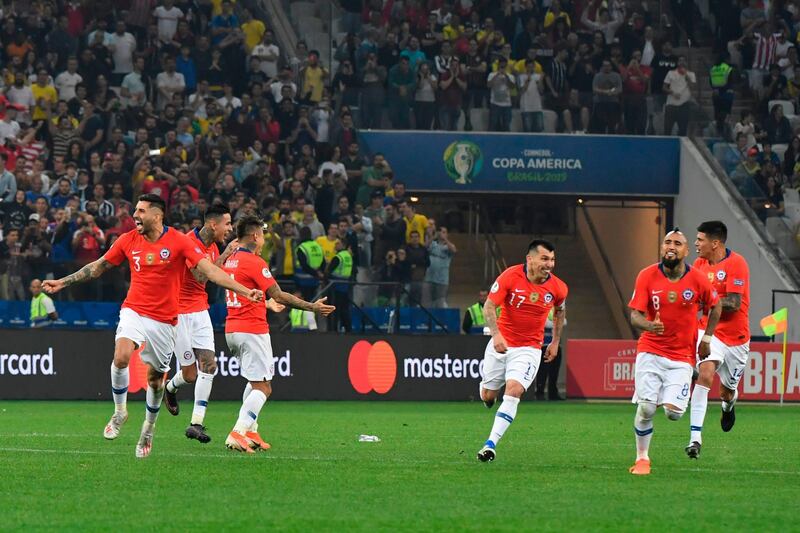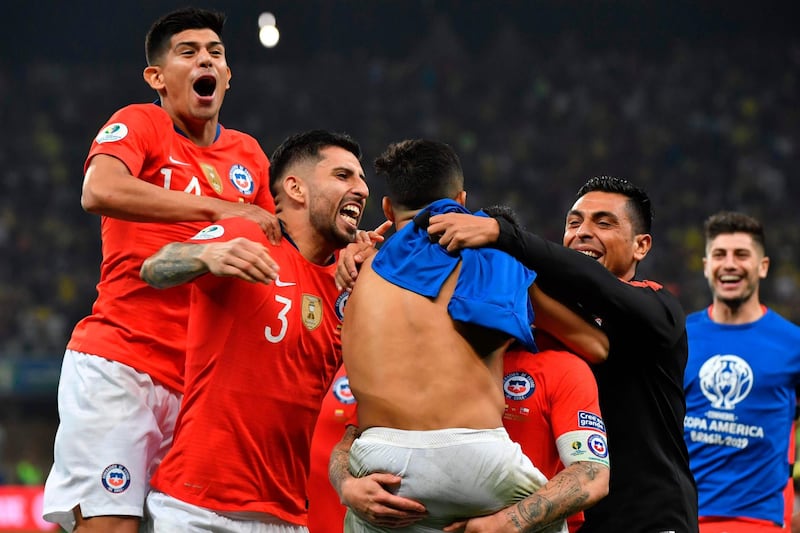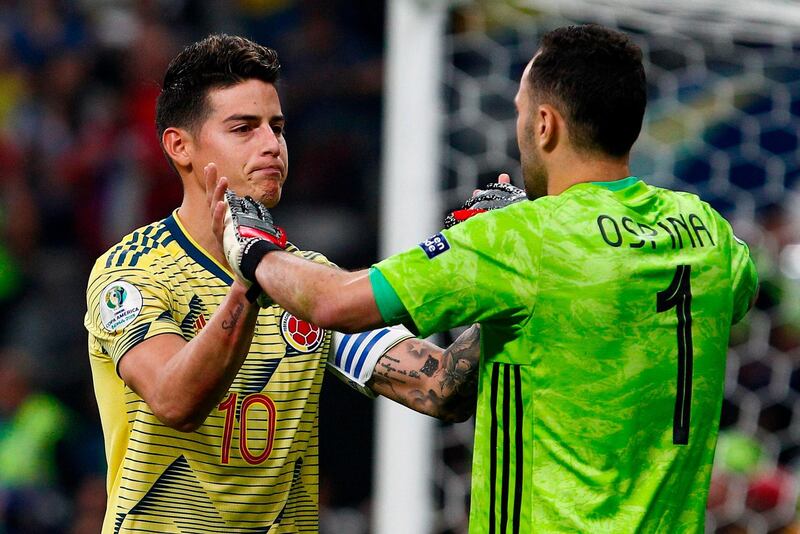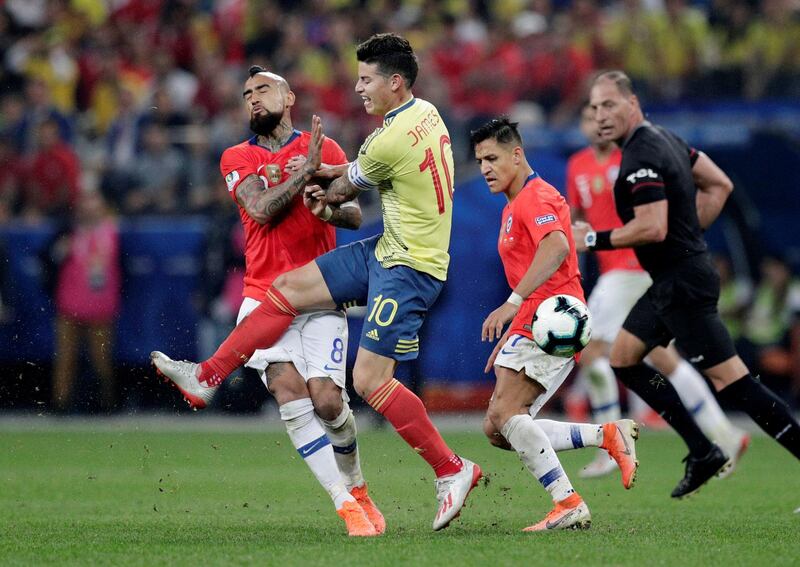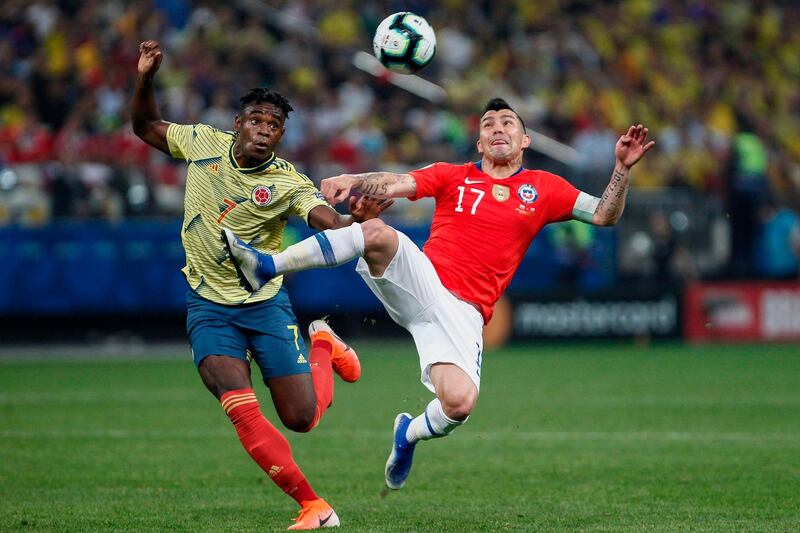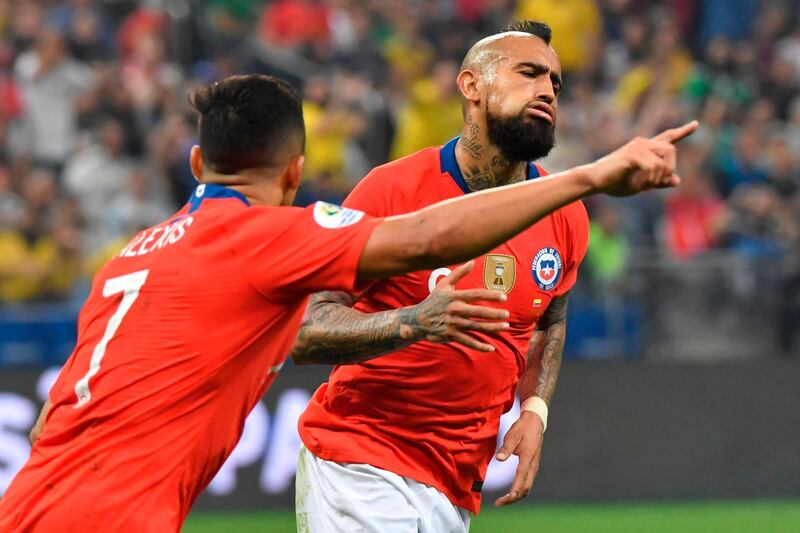Like Maurizio Sarri and his 60 cigarettes a day, Colombia have a bad habit. Los Cafeteros, the so-called People of Coffee, have developed a tendency to fail on the big stage; to find a way to lose even when everything is in their favour.
In the 1990s, with the great Carlos Valderrama and Faustino Asprilla in their ranks, they never got past the last 16 at a World Cup; they never reached a Copa America final, falling instead at the semis three times in succession. When Colombia finally did become champions of South America in 2001, rather than build on the success, they followed it up by failing to qualify for a World Cup for more than a decade.
Their performances at the 2014 and 2018 global showpieces have helped optimism slowly bubble back up again. Eighteen goals across the two tournaments proved their traditional attacking play was not an issue, but a surprise loss to Japan last summer, and the ease with which they conceded chances in other ties, suggested a defensive frailty that needed to be addressed.
Enter Carlos Queiroz. Recruited from Iran after January’s Asian Cup, the former Portugal, Real Madrid and UAE manager left Tehran with a record of 100 games and only 60 goals conceded.
His ability to organise a defence was seen as the missing piece of the Colombian puzzle, and the early indicators suggest he is getting his message across.
Yet on Friday night against Chile, Queiroz’s hotly tipped Colombia found a way to fail once more.
There has been criticism of this year’s Copa America being too sanitised; too clean and corporate. For domestic league matches, the streets outside stadiums such as the Mineirao and Maracana tend to be a chaotic mixture of expletive-laden chants, chargrilled meats and chilled drinks being served out of makeshift ice buckets.
This month though, with local organisers implementing a Fifa-style perimeter ring inside which only ticket-holders are allowed, the approach to some lesser matches has felt more funereal than fanatical.
This was not one such match. Perhaps it was because Argentina had set up a semi-final with Brazil earlier in the day, but it felt as if, finally, the Copa America had awoken from its slumber.
The approach to Arena Corinthians saw the local metro turn into a sea of yellow and red shirts, while inside the stadium, banners and flags unfurled. The Chilean anthem continued into its second verse as has become tradition in recent years.
Queiroz had called the match an “anticipated final” and such was the traffic in Sao Paulo, kick-off was delayed to allow not only more fans to arrive but also the Chile team’s bus.
Colombia were the only team to collect maximum points during the group stage and did so without conceding a single goal, yet despite keeping another clean sheet against the Chileans, they still managed to exit at the quarter-final stage for a third time in four iterations.
An exhausting, emotional 5-4 defeat on penalties left Queiroz philosophising that "shootouts are more dependent on God's will than our will. It has been like this for ever and will remain so".
The Portuguese coach added: “Our team played four great matches. We have not lost a single game; not conceded a goal. We only lost a shootout. It’s a very hard way to leave a competition, but somebody has to lose and somebody has to win. Unfortunately for us, Chile won.”
It was a defeat for which Queiroz must shoulder the blame. With a day’s more rest and against the oldest side at the tournament, Colombia threatened to run rampage early on. Yet for all their early verve and newfound defensive stability, they managed just one shot on target.
________________________
Chile's win over Colombia in pictures
________________________
Chile, meanwhile, breached David Ospina’s otherwise unbreachable goal twice, only to see VAR rule both strikes out.
Captain Radamel Falcao, ineffective once more, stayed on the field for 77 minutes before eventually being hooked. It was too little too late though, and to suggest Queiroz and Colombia were deserving of anything more than they got would be a difficult claim.
Chile, the reigning champions, progressed when Alexis Sanchez calmly slotted home the winning penalty after left-back William Tesillo had missed the target.
“I am the one responsible for the final result,” Queiroz said. “We need to create a more steady team and solid identity, but Colombia are in an uptrend now and it will continue. I do believe that. It has been a step forward. We are now able to go toe-to-toe with Chile, the champions. I see a very promising future.”
This is not blind optimism. Queiroz has clearly created a more structured defensive system and while the team now appears unbalanced and lacking at times in attack, time is on their side to sort the issue.
Centre-half pairing Yerry Mina and Davinson Sanchez are just 24 and 23 respectively, while James Rodriguez will turn 28 next month. The Copa America will not only return next summer, but will be shared between Colombia and Argentina.
The last time Colombia hosted the tournament, they won it for the first and only time: six wins from six and not a single goal conceded. It is the kind of campaign Queiroz will dream of replicating.
Fortunately for him, he has another 12 months to find the tactics to enable it. And a way to help his adopted nation kick their bad habit.
